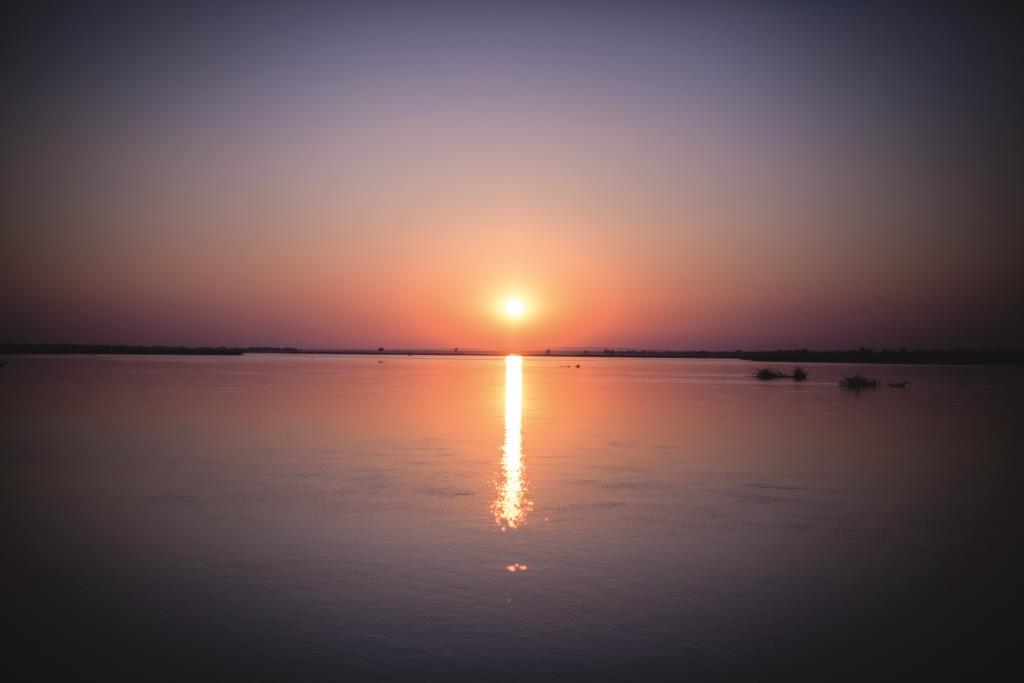When an elephant charges, all you can do is pray and try and get out of its way; especially when you are stuck in a two-man canoe riding the powerful current on the Zambezi River.
It is a far cry from sipping a pina colada on a deckchair under a tree. It’s the last thing you would expect, but staring into the eyes of a two-ton beast that is only 10 meters away from you, will change the way you look at the world. This is the Lower Zambezi National Park, in Zambia, where the idea of a good time is getting as close as you can to nature without being trampled.
Most tourists would find Zambia difficult to point out on the map. It’s quite easy to overlook. It is hemmed in by Africa’s best known wildlife tourist destinations: Botswana; Mozambique; the Democratic Republic of Congo; Malawi; Tanzania and Zimbabwe. Up until 1991, the country was a socialist state, which prized copper over tourism. Now, the country has flung open its doors and is hoping to double tourism from 300,000 to 600,000 visits by 2015 and increase GDP from 2% to 7%, in line with Zimbabwe. It is arguably the freest economy in sub-Saharan Africa.

What it means is more people are likely to be drawn to the thundering Victoria Falls, millions of fruit bats migrating, tiger fish jumping out of the water, and running away from elephants on the banks of the Zambezi River; or in some cases rowing furiously.
Loading...
My introduction to Zambia came from game ranger, Wallace Kabompa, who works in the national park where he grew up, for Chiawa Camp; the only bush camp in the big five reserve, which lies on the Zimbabwe border.
For Kabompa, hippos and elephants walking in your backyard is just another day. He grew up fishing along the Zambezi, he has chased leopards from his patio and he has run from so many elephants in the bush he could do it professionally.
“The dangers are very real. I have seen it first-hand. When I was very young, I went swimming in a pool close to the river with my friend. My friend went down, underwater, and then he went for good. I never saw him again. His parents came to me and said ‘where is your friend?’. I said I didn’t know. He had been eaten by a crocodile. I tell you, I have been beaten by my parents not to swim in the Zambezi. My parents would say don’t you know there are crocodiles, it’s dangerous,” he says.
Standing by the river he warns tourists of the dangers of canoes.
“I just need to point out that the Zambezi River is dangerous. When you are in the canoe please do not dip your hands into the river. Crocodiles are advantageous predators, and we don’t want them to take advantage of your hands. Elephants will give you a toot when they think you are getting too close. But it’s nothing to be scared of, they are just saying hi. If we encounter a mother with her baby they are more aggressive. All you can do is try not to get in their way. So… who wants to go in front?” he says.
A Dutch family, red of nose and sweating profusely in the 40 degree heat, watch skeptically as he speaks. Their sunburned faces turn white at the mention of being in front. With Kabompa’s cautious speech over, we board our canoes and enter the Zambezi. Kabompa boards the two-man canoe with me, the eager photographer, in front.
As the sun sets, the water glistens in golden light. In the still of the evening, Kabompa’s warning came to life like a snake in a bed. It started so sedately. In the distance, a herd of elephants crossed the river. The only problem was at the end of the line were two females with a baby.
“Let’s get close, I really need a good photo,” I say.
Kabompa obliges and we drift closer, hugging the shoreline. It was as quiet as the grave. The elephants begin to cross the river, but as they reach our side of the shore there is a problem. They get stuck. In their panic, their bodies crash against one another. Their ears flap madly. They then turn and come straight for us.
You may think an elephant charging in water is slow. Think again. An elephant slices through water like it is going through a field of grass. White water churns at their feet. Their trumpeting gets louder with every step. Their trunks smash the water. It is terrifying.
When it is 50 meters away you think it can never reach you. When it is 35 meters away you worry that it will. When it is just 15 meters you realize one stamp of the foot could turn your body to dog meat.
It is at this time that Kabompa saves us from the butcher shop. He slams his paddle in the water violently, sending us in reverse. Ten meters from us, where our canoe was a few moments before, the beasts take a sharp right turn and scramble up the bank. I thank the heavens.
Our canoe rocks in the elephants’ wash. I turn to Kabompa, too stunned to speak. He looks back with a smile as wide as the Zambezi.
“Was that close enough?” he asks.
All I could do is nod in agreement as the canoe drifts away to live another day.
“Do you need to change your pants?” Michelle, one of the Dutch tourists, asks.
No change needed after a moment deep in the Zambian bush that will live with me for the rest of my life.
With gratitude to the Zambian Tourism Board and Proflight Zambia for accommodation and flights.
Loading...
